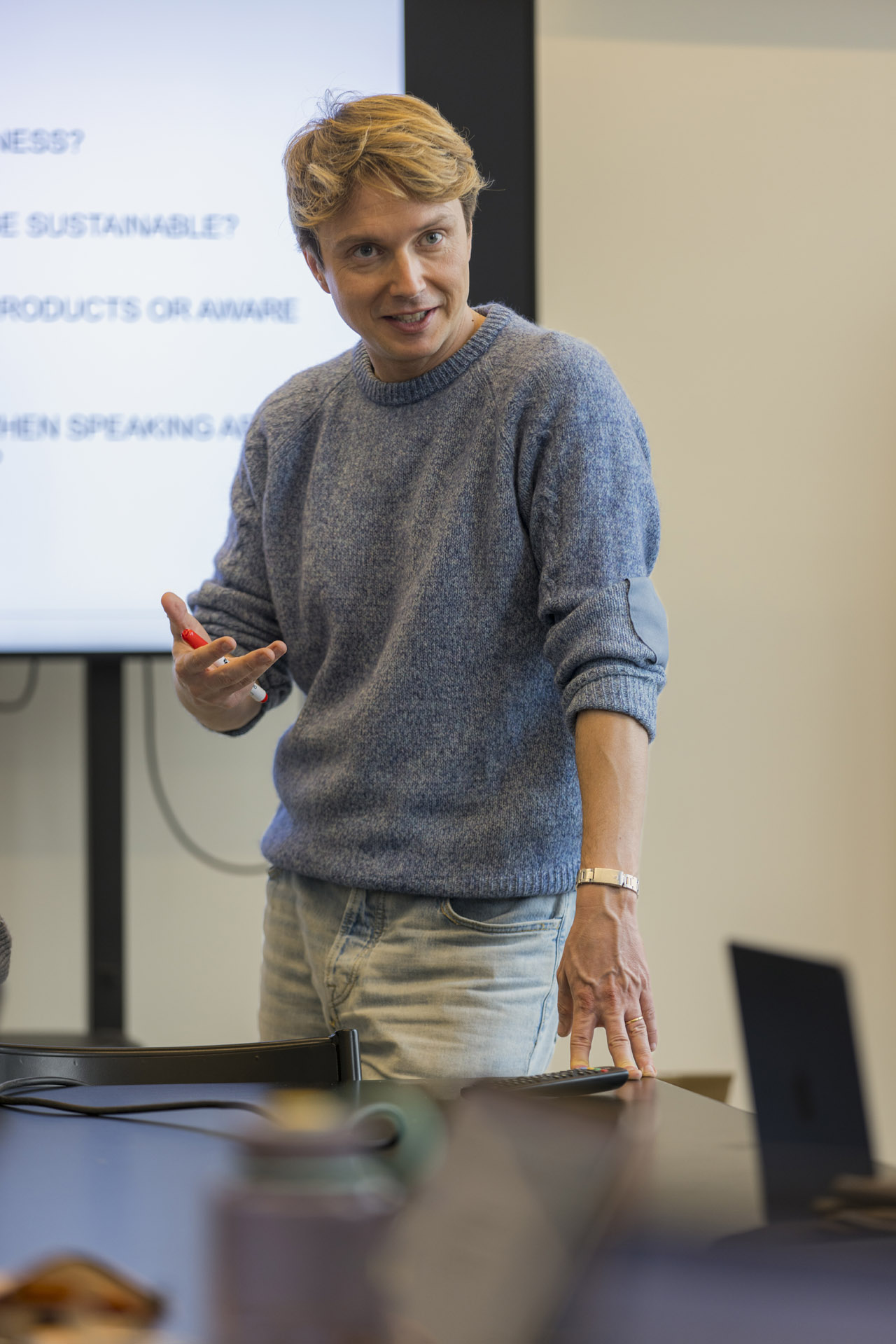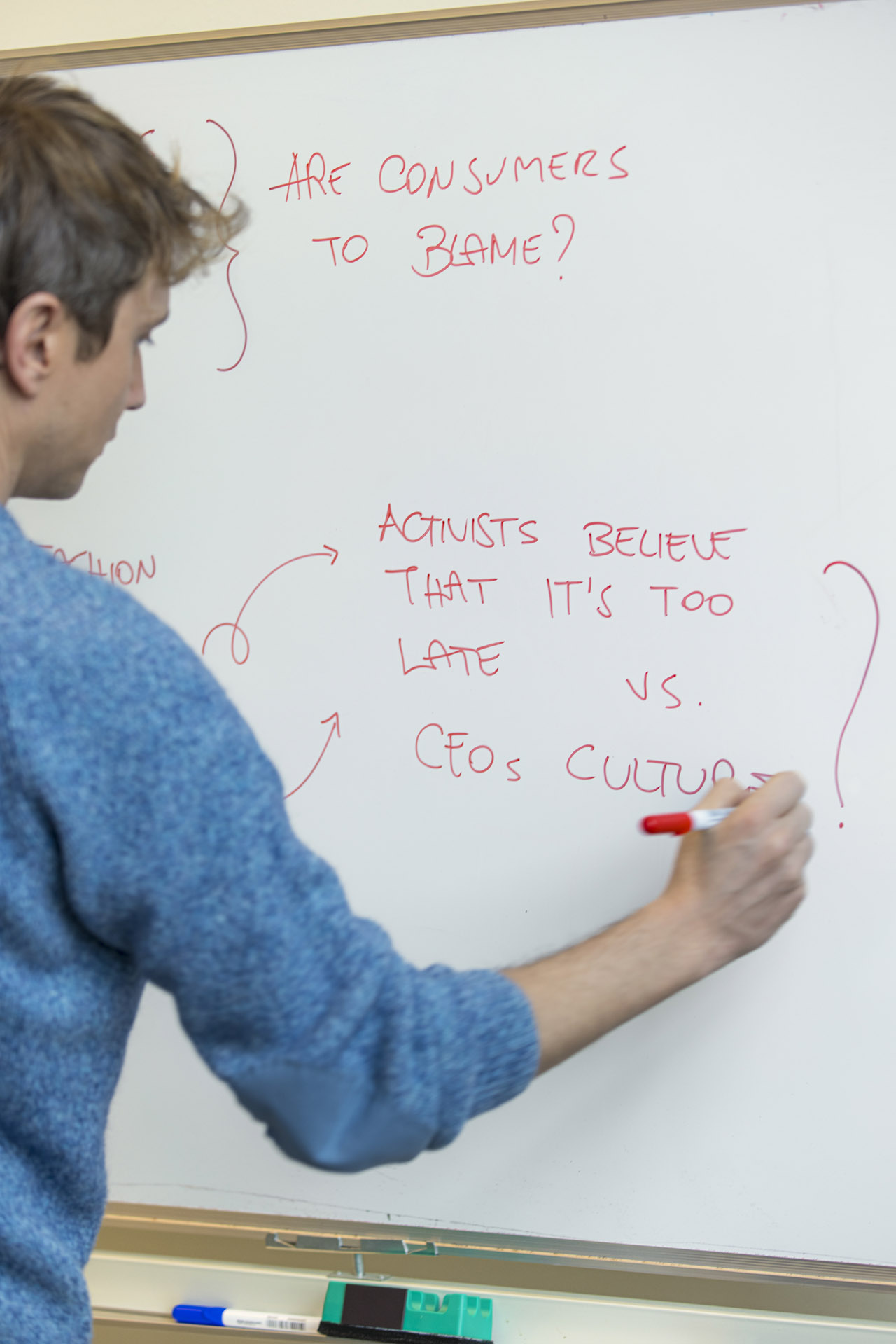Ward’s message was uncompromising but deeply inspiring. “Raise your voice,” he urged. “Call out what is Fuorimoda!, even if they don’t listen immediately, keep going. Change doesn’t come easy, but it starts with persistence.”
The intimate setting of the Aula Magna at Manifattura Tabacchi buzzed with anticipation on the evening of November 26, as students, faculty, and industry professionals gathered for the presentation of Matteo Ward’s new book Fuorimoda!. As a third-year Undergraduate student in Fashion Business, I had the opportunity to report live for the Journal, capturing the vibrant energy and critical discussions that defined the evening.
Massimiliano Giornetti, Polimoda’s Director, opened the evening with a bold declaration: “This is not just another book about fashion, this is a critical declaration of intent.” His words set the tone for what was to follow, a compelling critique of the industry and an urgent call for transformation.


Matteo Ward, co-founder of WRÅD and mentor in Polimoda’s Master in Sustainable Fashion program, shared the stage with journalist Giuliana Matarrese for a conversation that transcended a typical book launch. This was not merely the unveiling of Fuorimoda!; it was a manifesto in motion, a powerful call to rethink fashion’s role in the world, blending historical analysis, sharp analysis, and a vision for the future.
From the moment Ward began speaking, his passion filled the room. “What can a hoodie do today that it couldn’t do yesterday?” he asked, reframing fashion’s purpose in a single, powerful question. For Ward, sustainability isn’t just about buzzwords or materials; it’s about fundamentally redefining design. Fashion, he argued, must prioritize function over fleeting trends, creating garments that add real, lasting value to people’s lives.
Ward’s frustration with the industry was palpable, most notable when he analyzed the psychological tactics employed by fast fashion. “They leverage our insecurities,” he said, “every purchase gives a fleeting dopamine rush, but the emptiness that follows drives compulsive buying. Fast fashion isn’t just harming the planet; it’s also damaging our mental health.” Matarrese added her insight: “Fashion has always been about more than the garment; it sells access to an idealized world where owning a product makes you feel superior.” Together, they highlighted how overconsumption feeds on human vulnerability, perpetuating cycles of addiction and environmental degradation.
The conversation then shifted to luxury fashion, where Ward’s vision was equally sharp. While he acknowledged that luxury brands have the resources to lead the sustainability movement, he criticized their profit-driven models. “Luxury brands have shifted from creating value for society to chasing pure financial gain,” he observed. True transformation, he argued, requires addressing the systemic inequalities embedded in the industry. “No one can achieve full sustainability—period,” Ward admitted. “What we can do is embark on a transition to mitigate environmental impact and maximize societal benefits.”
Amid his critique, hope emerged. Ward drew from Italian philosopher Delucchi’s evocative definition of ecology: “the ability to create objects that extend the pleasure of use over time.” For Ward, this concept of emotional durability encapsulates the future of fashion, “design garments that people cherish,” he urged. “What can a fashion show, a campaign, or a hoodie do today that it couldn’t do yesterday? If we reflect on this, we can restore the dignity of an industry that has shaped culture for centuries.”
The most powerful moment of the evening came during the Q&A session when a student asked how to navigate an industry often criticized for its ethical challenges. The room fell silent as Ward acknowledged the difficult realities many face. “Saying no to fast fashion is a luxury not everyone can afford,” he admitted, “but if you can, join these companies and push for change from within. Cultural tension and critical voices are essential for driving transformation.” His response felt deeply personal, a challenge to all of us preparing to navigate an industry at a crossroads.
Ward’s challenge lingered: transformation begins with persistence, courage, and action. For those in attendance, Fuorimoda! emerged as more than a book; it became a lens through which to scrutinize the industry’s flaws and reimagine its potential. Witnessing these discussions firsthand as a student, I reflected on how Ward’s ideas translate into meaningful action in my own journey. His message underscored that fashion’s power lies not just in its ability to create but in its capacity to inspire meaningful change.
As the evening concluded, Ward left us with a question that resonates beyond the event: “What can we do today that we couldn’t do yesterday?” For the industry professionals, creatives, and students in the room, it was a reminder that the future of fashion depends on more than innovation, it requires a commitment to integrity, responsibility, and action.
The event wasn’t just about critiquing the fashion industry; it was a reflection of Polimoda’s mission to inspire ethical, purposeful, and forward-thinking professionals ready to lead transformative change. Fuorimoda! challenges everyone in the room to be part of that transformation, creating a collective responsibility to redefine the industry’s future.
CREDITS
Written by:
- Giulia Sofia Rivers, Undergraduate in Fashion Business student

